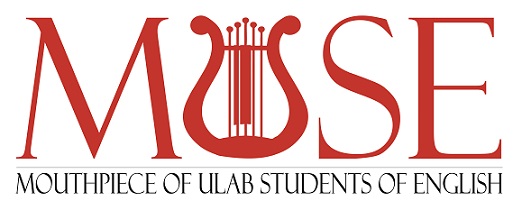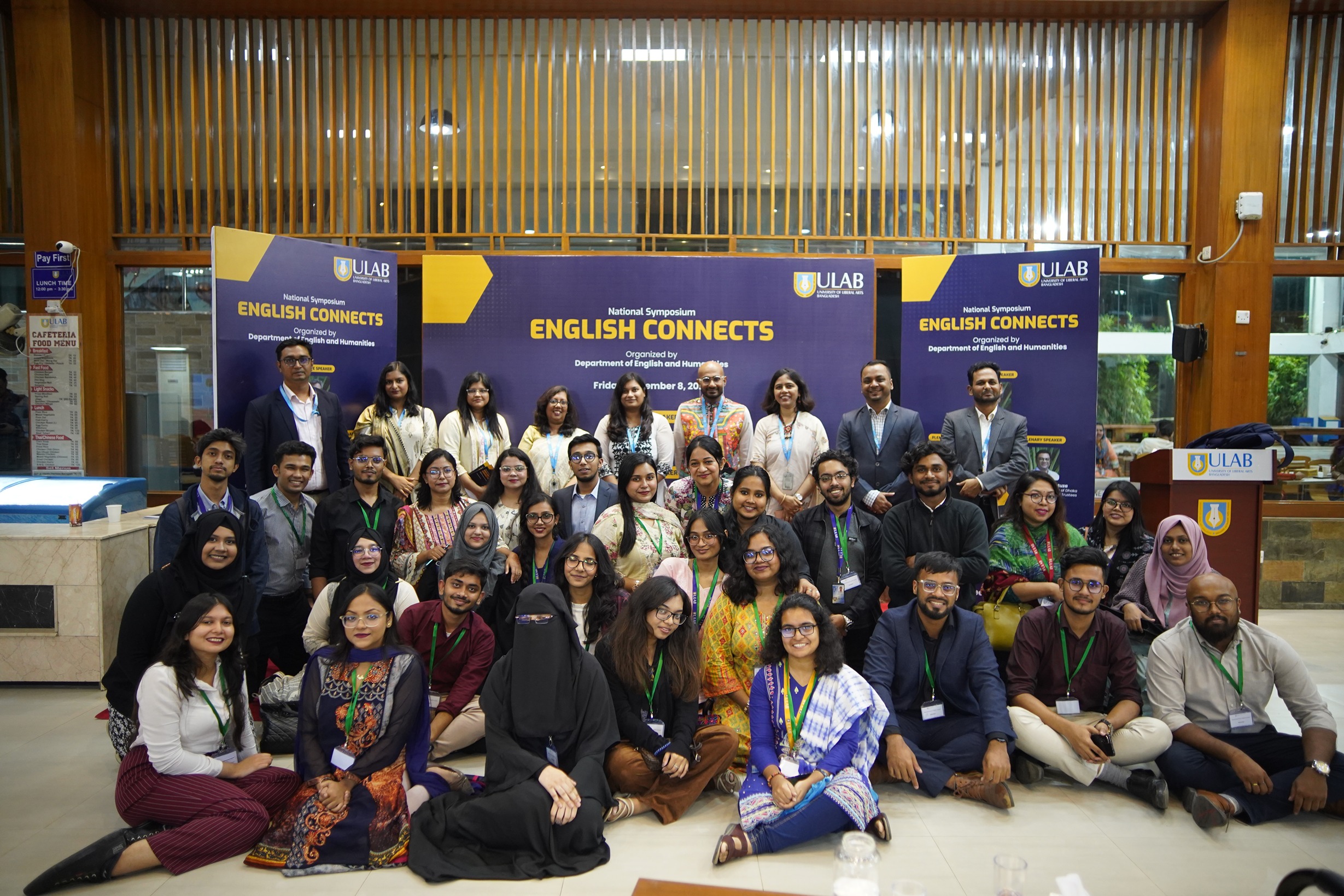Nusrat Jahan Esa
The Department of English and Humanities at the University of Liberal Arts Bangladesh (ULAB) organized a one-day National Symposium on December 8, 2023, on the theme of “English Connects.” Educators and students from educational institutions across Bangladesh were invited to present their scholarly papers on diverse topics.
In today’s increasingly interconnected yet paradoxically isolating world, EM Forster’s words, “Only connect!” ring true. Despite technological advancements facilitating global connections, societal divisions are becoming more pronounced. In an endeavor to foster new connections, revive old ones, and unite individuals through English Studies, the Department of English and Humanities at ULAB called for abstracts exploring connections, disconnections, and misconnections in literature, linguistics, teaching and learning, language and communications, translation, new media, and digital humanities.
The symposium began at 9 am with warm greetings from Ms. Arifa Ghani Rahman, Head and Associate Professor of DEH, ULAB. Subsequently, Prof. Kaiser Haq, Dean of the School of Arts and Humanities, and Prof. Shamsad Mortuza, Special Advisor to the Board of Trustees, welcomed the audience and applauded their scholarly participation. The event was formally inaugurated by Prof. Jude William R. Genilo, Pro-Vice Chancellor of ULAB.
In his Keynote Address titled “Connecting the Dots,” Professor Kaiser Haq discussed the evolution of English practice in Bangladesh post-independence and its reflection of culture and tradition. The first plenary session, “English Studies in the Digital World: Restoring Human Connection,” delivered by Professor Emeritus Syed Manzoorul Islam, emphasized the importance of humanism in AI and its potential for emotional intelligence. The second plenary session, led by Dr. Abu Saleh Mohammad Rafi, examined language complexities and their impact on cultural connection, particularly in educational settings. Prof. Shamsad Mortuza, in the third plenary session, explored the relationship between language, history, and religious beliefs, envisioning the potential for machines to emulate human emotions and creativity.
Dr. Mohammad Mahadhi Hassan moderated an open forum where Symposium participants discussed creating a conducive academic environment for English studies. Two parallel sessions featured presentations from 100 scholars representing 24 universities, 8 schools, and colleges, facilitating vibrant insights and bridging educational gaps.

